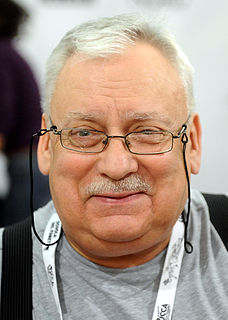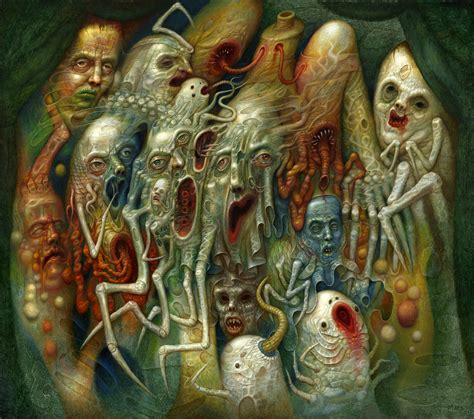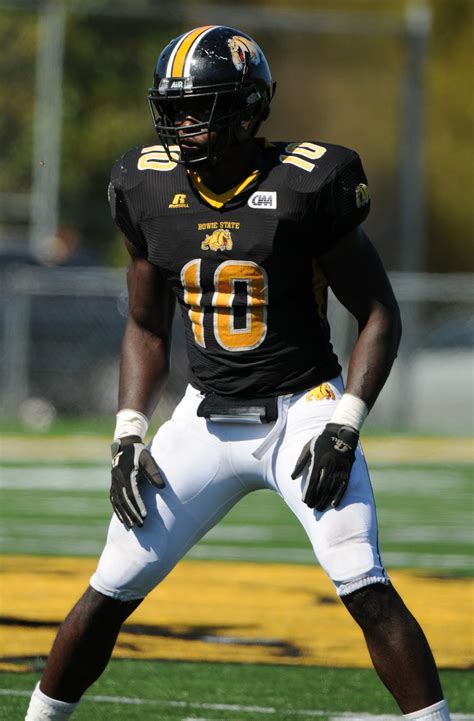A Quote by Andrzej Sapkowski
People like to invent monsters and monstrosities. Then they seem less monstrous themselves... they feel better then. They find it easier to live.
Related Quotes
People like to invent monsters and monstrosities. Then they seem less monstrous themselves. When they get blind-drunk, cheat, steal, beat their wives, starve an old woman, when they kill a trapped fox with an axe or riddle the last existing unicorn with arrows, they like to think that the Bane entering cottages at daybreak is more monstrous than they are. They feel better then. They find it easier to live.
If human beings are all monsters, why should I sacrifice anything for them?" "Because they are beautiful monsters..., And when they live in a network of peace and hope, when they trust the world and their deepest hungers are fulfilled, then within that system, that delicate web, there is joy. That is what we live for, to bind the monsters together, to murder their fear and give birth to their beauty.
He shook his head. "Some people think that they like music, but they have no idea what it's really about. They're kindding themselves. Then there are people who feel strongly about music, but just aren't listening to the right stuff. They're misguided. And then there are people like me."
"People like you," I said. "What kind of people are those?"
"The kind who live for music and are constantly seeking it out, anywhere they can. Who can't imagine a life without it. They're enlightened."
I had come to discover that "safe" was an illusion, a pretense that adults wrapped around their children- and sometimes themselves- to make the world seem comfortable. I had discovered that under that thin cover of let's-pretend, monsters and nightmares lay, and that not all of them came from places like the moonroads or the nightling cities. Some of the monsters were people we knew. People we thought we could trust.
Sometimes I will portray the more normal-looking people as the monsters and then the more distorted - "uniquely formed" is the word I like to use, rather than monstrous - as the sympathetic characters in the painting. It's interesting because some people will get it right away, but a common reaction is to be a little off-put by it. And that is the whole idea. If it grabs somebody in a negative way, that's my intention.
Everyone tries to create a world he can live in, and what he can't use he often can't see. But the real world is already created, and if your fabrication doesn't correspond, then even if you feel noble and insist on there being something better than what people call reality, that better something needn't try to exceed what, in its actuality, since we know it so little, may be very surprising. If a happy state of things, surprising; if miserable or tragic, no worse than what we invent.
I don't like the way people cherish the ghetto, as if it’s some royal palace, or kingdom. I also don't like the way people treat each other in the ghetto. It is really hard to find love, trust, and respect. You don't find too many people that want to do better for themselves in the ghetto because so many people seem to be satisfied with where they're at.
People find themselves in ruts all the time. You're in a complacent lifestyle where you work 9 to 5 and then you add a mortgage and kids. You feel trapped, but guess what, brother? You constructed that life. If you're OK with it, there's nothing wrong with that. But if you've got unease, then you've got to make a change.
One of the less attractive aspects of human nature is our tendency to hate the people we haven't treated very well; it's much easier than accepting guilt. If we can convince ourselves that the people we betrayed or enslaved were subhuman monsters in the first place, then our guilt isn't nearly so black as we secretly know that it is. Humans are very, very good at shifting blame and avoiding guilt.





































